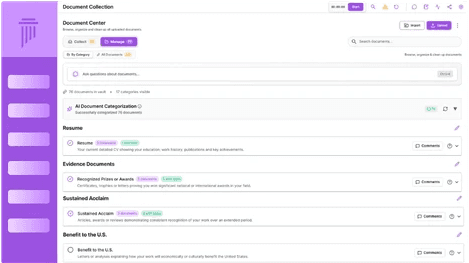When Mala Bajpai first sat in an immigration courtroom during law school, she felt something click. She had grown up in Arizona as the daughter of immigrants who arrived in the 1960s, among the first Indian families to settle in the state. She had seen what community meant, how opportunity rippled outward from a single green card or work visa. But inside that courtroom she recognized something else — that the practice of immigration law was not just paperwork and process, but the unlocking of futures.
Her career did not begin there. Bajpai started in employment law at a mid-sized firm, a path that felt respectable but not deeply rewarding. “When you win in immigration, you’re really changing lives,” she reflects. “You’re starting the American dream for a family. My parents sought that dream for my brother and me, and I feel empowered to give it to others.”
Unlike many lawyers, Bajpai stepped away from practice when she wanted to start a family. But she returned with fresh purpose, founding her own firm in her 40s, in a new state, with a new beginning. “I felt really passionate about coming back,” she says. “There’s such a need in our community. I can help people find calm and peace through a very stressful process.” Her combined background in employment and immigration law positioned her to serve not only families but also companies that must navigate complex compliance.
Ask Bajpai about today’s immigration climate and she does not hesitate. “The entire system is under attack,” she says. Public narratives focus on criminals or deportations, but what she sees is the process made harder across the board. More hurdles. More scrutiny. More inconsistency.
That inconsistency stings. She recalls two near-identical marriage cases. One client’s work permit arrived in three weeks. Another received a request for evidence questioning financial sponsorship, even though the sponsor earned nearly a million dollars annually. In a separate EB-1 case, the government officer “simply did not read what we filed,” reclassified the applicant into the wrong occupation, and denied the petition. The response? Refile and move forward. “If they ask for one thing, I give them ten,” Bajpai explains. “I don’t want to leave any room for error.”
For years, many applicants leaned on officer discretion, returning to the U.S. every 11 months to maintain green cards, or assuming small businesses would not be audited as harshly as major corporations. Those days are over.
“The law says if you’ve been outside the country more than six months, you’re presumed to have abandoned your green card,” Bajpai notes. “After twelve months, it’s considered abandoned. People got comfortable relying on leniency. Now it’s being scrutinized.” She urges clients to travel with their full immigration files and proof of ongoing U.S. ties.
Employers, too, must tighten compliance. Bajpai tells the story of a small restaurant with 13 employees, all authorized, none with I-9s on file. The result: a $50,000 fine. “Anywhere there was discretion, we cannot count on it now,” she warns.
Much of Bajpai’s work is less about filling out forms than managing fear. “A big part of what I do is helping people through their anxiety,” she says. “Today the process is one way, tomorrow it might change. But whatever it is, we’ll be ready. We won’t give up.”
She encourages clients to think in contingencies. If Temporary Protected Status is pulled, what are the alternatives? If DACA is struck down, what other statuses are available? “Immigration is never cookie cutter. Everyone’s situation is unique. The key is knowing your options and not waiting passively in a gray area.”
The stories that stay with her are rarely quick wins. One client entered her office in 2018 as a dependent spouse on an O-2 visa. When her husband abandoned the family, she fell out of status overnight. Bajpai guided her step by step: securing an E-3 visa, renewing it through the upheaval of Covid, then supporting a marriage-based case despite complex family circumstances. Recently, Bajpai stood beside her at a naturalization interview. “It was incredibly rewarding to see her at the end of her journey,” she recalls. “We’d been working together for years. Now she and her children have the future they dreamed of.”
In Arizona, Bajpai is part of a tight network of immigration attorneys who share knowledge, trade case notes, and troubleshoot emerging issues. Recent conversations focus on new changes to the H-1B visa process and a new $100,000 filing fee, H-1B employees receiving removal notices while still within their grace period, or family-based interviews that stretch for hours instead of the usual sixty minutes. The solidarity helps. “It’s good to be reminded not every officer is bad,” she adds. “Many are empathetic, just trying to do their job. Our role is to give them the tools to approve.”
For clients anxious about headlines and uncertainty, Bajpai’s advice is simple but steady. “Don’t get bogged down in the daily news and what you see on the internet,” she says. “Immigration law fluctuates; keep hope, stay informed, persevere — and don’t commit crimes or do anything violate the terms of your current visa.”
In an era where leniency is scarce and compliance is paramount, Bajpai offers a strategy rooted in preparation. More evidence. More documentation. More readiness. It may not eliminate anxiety, but it can keep the door open.














